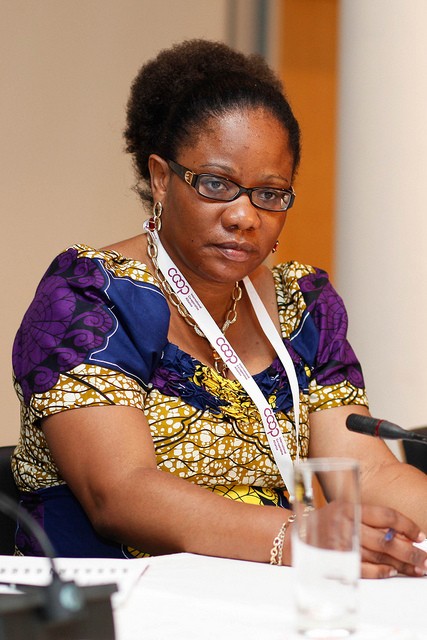Building a ‘human economy’
Co-ops have a key part to play if the world is to move to a “human economy” says Oxfam after it revealed that eight people are now as wealthy as the poorest half of the world’s population. The charity’s report on global inequality said eight men share $426bn (£350bn) between them.
Tax evasion and widening pay differentials are to blame. Oxfam called for a “human economy” which works “for the 99%”. This would include environmental sustainability, gender equality and more worker-owned businesses.
Enrich Sahan, head of the charity’s private sector team, said: “Co-operatives fit in with our work with social enterprise and Fairtrade”. “It’s part of our DNA, for instance when we helped set up Cafédirect, to be supporting enterprises around the world that are co-owned.”
He added: “We have been supporting enterprises in Nepal, Ethiopia and Rwanda, for example,” said Mr Sahan.
“It’s a big part of our approach to inequality… Profits aren’t going to line the pockets of billionaires, they go to the workers.”
How can co-operative women be bold for change?
This year’s theme for International Women’s Day was “Be Bold For Change” – but how did the co-op movement taking up the baton? We spoke to leading woman co-operators to learn how co-ops can be bold.
Ruth FitzJohn, president of the Midcounties Co-operative, said “Bang on about it: Let’s be bold and persistent in getting the repeated message out there. We do not have gender equality. This is not fair. This is not efficient. This is wrong. It is our job to do something about.”

Dr. Chiyoge B. Sifa the regional director of the International Co-operative Alliance Africa, said “Be clear about what need to change in our lives and surroundings. Be clear about the change we want to see and what our share in it. Act confidently as agents and advocates of the change we what to see in the World. Be courageous in confronting challenges on the road to change. Change may be resisted and roadblocks put to hamper our quest for a better world. Determination is key to any successful ending. Winners are not quitters and quitters are not winners.”
Claire McCarthy, general secretary of the Co-operative Party, said “The history of the co-operative movement shows that women with a passion for change, can’t sit on the sidelines. Mary Barbour, Margaret Bondfield and Joyce Butler were just the kind of strong women, restless for change, that Donald Trump would disapprove of. If you don’t like the increasingly reactionary, intolerant, and frankly unco-operative nature of our political discourse in Britain, then get involved and be a part of changing it.”
Platform co-ops
“Inequality is one of the most important problems facing our society,” said Trebor Scholz, a scholar-activist who first coined the phrase ‘platform co-operative’ – a digital organisation owned and managed by an online member community. He added: “With the decline of the power of unions and the growth of unbridled capitalism and ecological degradation, we have seen extreme intensification and acceleration of inequality.”
Co-ops aren’t the sole solution, but he believes they are one of them, alongside peer-to-peer networking, new roles for unions and technologists and a commitment to commons open source. These are types of collaboration that see people working together to “respond to the failure seen over the last
40 years”.
Using the UN’s Sustainable Development Goals
Alyson Slater, chief network engagement officer at Global Reporting Initiative, said “The SDGs provide us with a globally agreed set of goals and targets for creating a better world. They are generally being embraced by the business community, and governments have made it clear that we cannot reach most of these goals without business engagement.
“Co-ops are in a unique position when it comes to the SDGs – they have designed their business models to try to have a positive impact on some of the toughest goals – things like inequality, zero hunger, and life on land. If co-ops can demonstrate their contributions to these goals they may very well inspire other businesses to scale up their action too.”
Filmmaker Ken Loach at the Co-op Ways Forward conference:
“Co-ops embody values of common ownership, equal access, equality, that’s what we have to stress.”
Amelia Cargo, volunteer chair of the Group’s lesbian, gay, bisexual and transgender network, LGBT+ Respect:
“The Co-op Group has a really good reputation of being LGBT-friendly. We have been in the Stonewall Workplace Equality Index since 2005 and are the only retailer to have given evidence for equal marriage at Parliament. I was drawn to the Co-op’s commitment to local communities and its reputation as one of the most LGBT-friendly employers.”
• More from 2017 at 2017 In Review

